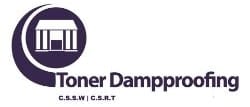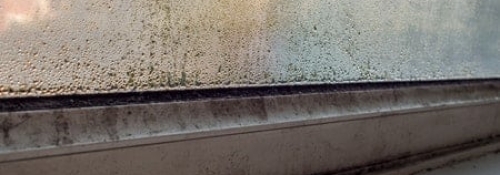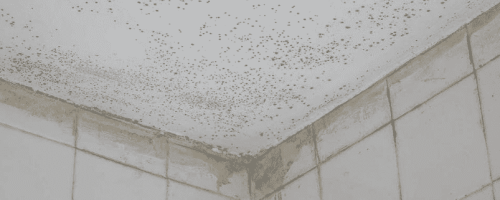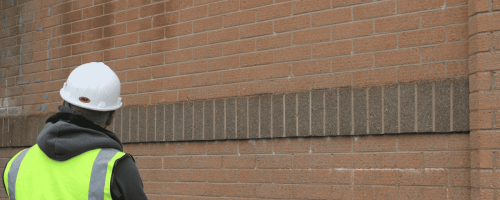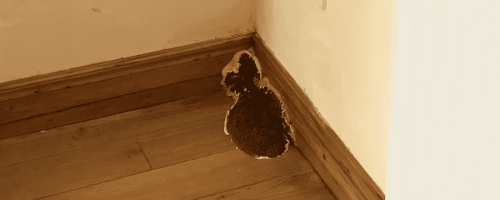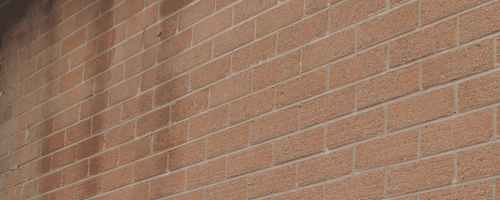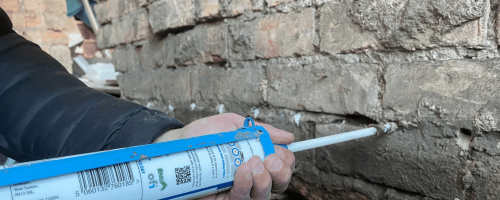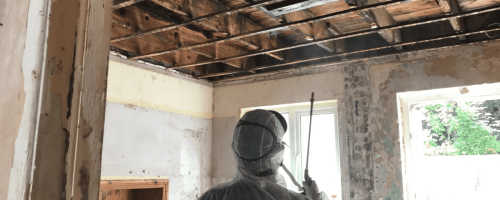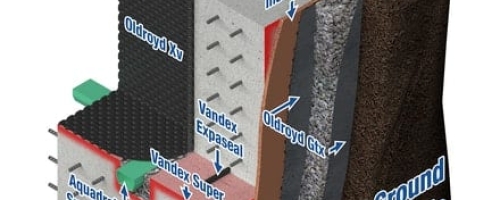Woodworm Treatment In Belfast & Northern Ireland
Woodworm treatments, wood destroying beetle specialist eradication and identification company carrying out specialist woodworm treatments and timber preservation works for both home owners and builders / contractors using the industries highest quality woodworm / wood destroying insect eradication products.
Woodworm Treatments
The most common wood destroying beetle found in Northern Irish homes and buildings today is the common furniture beetle anobium punctatum. This insect commonly occurs outdoors infesting dead tree trunks, branches and other forms of exposed timber but, the main cause for concern is its ability to infest indoor timbers in a variety of situations.
Adult beetles emerge from timber in the spring and summer. Very soon after mating the female beetle lays approximately 30 eggs, often into cracks and crevices in the timber she has just vacated. Usually, within a month the eggs hatch and the young grubs begin burrowing into the timber. Here they remain for between two and four years slowly eating and burrowing beneath the surface of the wood. Eventually, the mature larva excavates a pupation chamber just beneath the surface of the wood. Following the pupation process, the adult beetle cuts a hole in the surface of the timber and emerges to start the process once more. It is the appearance of new emergence holes and the dust (frass) that falls from them that often indicates the presence of an active infestation of woodworm.
The woodworm beetle is significant because given the right conditions it can infest a wide variety of timber products including structural building timbers, furniture and wooden ornaments. If left unchecked infestations can lead to severe structural weakening and eventually total collapse.
Before making a decision on treatments a surveyor must consider the condition of the infested timber, the type and accessibility of the woodworm attack and the risks and hazards associated with any work that is to be recommended.
In preparation for the application of preservatives, the timbers should be cleaned down to remove any excess dust and debris. Treatments using water-based insecticides are very common and are generally successful and cost-effective. Chemicals are often applied by low-pressure spraying but some insecticides can be applied by “fogging” or are brushed on.
Furniture, ornaments and small items of timber can be treated by the use of heat, freezing or gas fumigation. All these methods of treatment are highly specialised and should only be undertaken by people who are trained and competent.
Death watch beetle xestobium rufovillosum, this insect is often associated with historic buildings and usually affects the sapwood of hardwoods that are damp or have been affected by fungal decay.
House longhorn beetle hylotrupes bajulus, This relatively large insect affects sapwood and is predominantly associated with roofing timbers. They are limited in range to a small part of south-east England. Infestations if left unchecked can lead to a severe structural weakening in a relatively short period of time.
When infestations by the death watch beetle and house longhorn beetle are discovered, treatments will always be dictated by site conditions and formulated by an experienced specialist.
If you suspect you have woodworm issues, you can book a professionally qualified C.S.S.W | C.S.R.T surveyor through our contact page.
Toner Damp Proofing Ltd puts customer care at the heart of our business and adheres to offer the highest standards for our customers. Toner Damp Proofing Ltd are full member’s of the Property Care Association (PCA) it is the trade association of property specialists covering the Northern Ireland, UK and Ireland who can be trusted to resolve problems affecting your building. PCA members include contractors, independent and freelance surveyors, consultants and manufacturers. You can always find Toner Damp proofing Ltd nearby with the expertise required for your project.
Property Care Association (PCA)
We are full members of the industry's trade association the PCA for damp proofing, waterproofing & timber preservation.
C.S.S.W Surveyor
Specialist in the protection of below ground structures against water from the ground awarded by the PCA.
C.S.R.T Surveyor
A national recognised qualification for the identification of damp and timber defects in buildings awared by the PCA.
Fully Insured
Toner Damp Proofing Ltd is fully insured for our customers protection. This mean less worrying for you when using us.
16+ Years Experience
Successfully carrying out damp proofing, waterproofing and timber treatment works throughout Northern Ireland for our clients.
Protected Guarantee
As well as our own company guarantees, we can offer Guaranteed Protection Insurances (GPI) for peace of mind and security.
We have always been committed to keeping Northern Ireland homes dry and will continue for many of years to come. Our staff and surveyors, are all paid salaries rather than being commission-based like many of our competitors in the damp proofing industry. This means they don’t feel pressure to oversell services or treatments to customers, and can provide honest advice without any expectation or obligation for customers to purchase our services.
Interesting Info
Toner Damp Proofing Ltd is registered in Northern Ireland under company number NI656555
Toner Damp Proofing Ltd
Unit 20 Work West Enterprise Centre, 301-331 Glen Rd, Belfast BT11 8BU
Office Hours
Mon-Thurs: 8:30-16:30
Fri: 8:30-15:30
Sat-Sun: Closed
